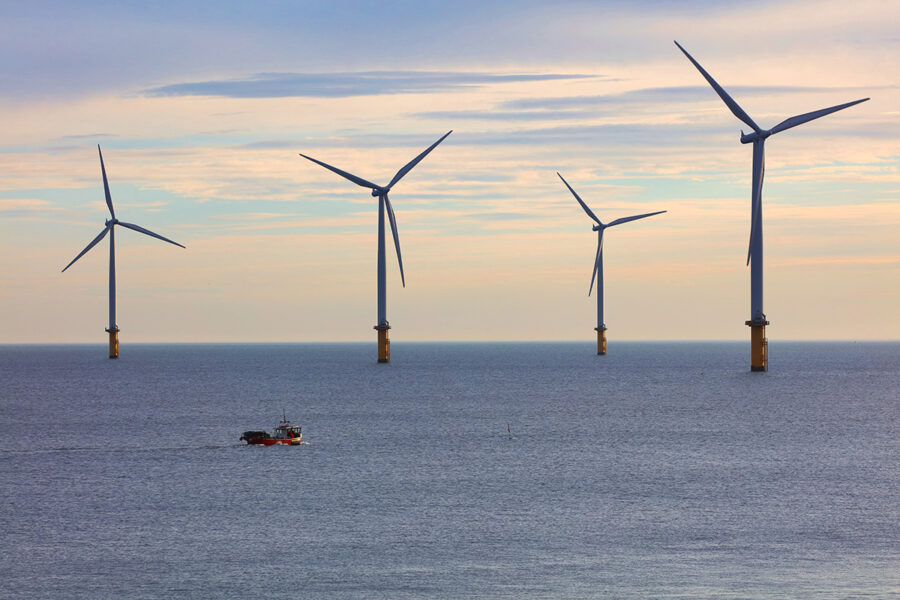The accelerated expansion of offshore wind and the pace of application of management measures within MPAs pose ‘a potentially huge spatial challenge to the fishing industry’, says the NFFO.
It says this is not just the well-known view of the fishing sector, but is increasingly recognised by those involved in planning and regulation of the marine area.
The federation made its comments following a meeting with the MMO to discuss problems related to loss of fishing grounds due to wind farm expansion and restrictions in MPAs.
Among the issues raised were how to respond to the challenge of ‘spatial squeeze’ and address potential impacts with measures to safeguard important fishing grounds, and that managing displacement of fishing effort requires ‘a joined-up approach set in the context of spatial planning for all interests’.
The NFFO says that will need ‘collaboration across government and regulators, a well-informed and cohesive industry response to the spatial squeeze, and a closer dialogue between the two’.
It says the resulting outcomes are likely to be more effective if the fishing industry and regulators of marine space work together. Government and the fishing industry must co-operate to address potential ‘spatial squeeze’ and the impact of displacement as far as possible, says the federation – but it stresses that it will take ‘effort, goodwill and intelligence to deliver well-thought-through approaches’.
NFFO chief executive Barrie Deas said: “This was an important meeting in which there was an honest appreciation of the spatial challenges faced by our industry.
“There was a solid commitment to consider all the existing tools available to address adverse impacts on the most important fishing areas – accepting that there are both economic and socio-economic factors to take into account.
“Displacement can have profound knock-on consequences, and so the best strategy is to assess this in the context of wider marine management and planning. Finding ways to pool data, and share information and knowledge, is an important first step. It is our ambition to continue the dialogue started in this meeting over the coming months.
“We will have to wait and see, given the undoubted complexities involved, whether the dialogue will lead to appropriate outcomes, but we cannot afford not to make the attempt. The consequences of doing nothing are too high, and the pace of change too rapid.”
Amongst the issues discussed were:
- Measures that could be applied now, drawing on existing marine plans
- The difference between fixed-turbine wind farms and floating wind
- Different forms of co-existence • How to ensure that fishing is treated in an equitable way to other seabed users, given that a licence to fish grants the right to fish, but no specific legal guarantee over access to fishing grounds – unlike farmers, fishers do not hold property rights over the grounds that they fish
- The fact that accurate and relevant data is essential, but that the methodologies employed and the assumptions on which policy decisions are made can be as important as the data used in determining outcomes
- Achieving a balance between risk and precaution in marine spatial planning
- The importance of effective monitoring in arriving at the right policy decisions.
The federation said the meeting was reassuring to the extent that the MMO and NFFO share a similar understanding of the scale of the challenges ahead, and the need for relevant evidence and engagement.
There was also agreement that working closely together, whilst challenging at times, would be more effective for all concerned.
This story was taken from the latest issue of Fishing News. For more up-to-date and in-depth reports on the UK and Irish commercial fishing sector, subscribe to Fishing News here or buy the latest single issue for just £3.30 here.








